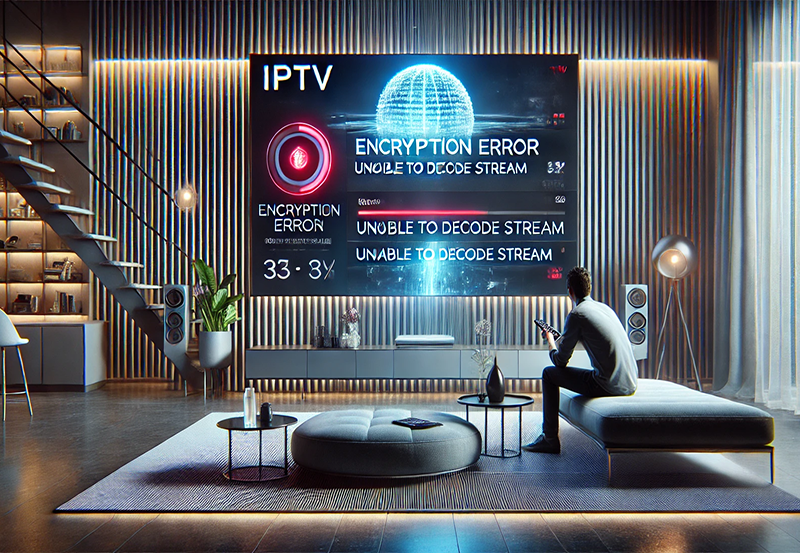With the rise of IPTV as a popular alternative to traditional cable, privacy concerns have become increasingly relevant. Streaming through IPTV relies on internet connectivity, which can expose users to potential risks, including data tracking, unauthorized access, and even geo-blocking restrictions. Protecting your privacy while using IPTV is essential for a secure and enjoyable experience. Here’s a comprehensive guide on how to safeguard your privacy and keep your streaming secure.
Buy 1 Year IPTV and Enjoy Unlimited Content
1. Use a VPN (Virtual Private Network)
A VPN is one of the most effective tools for protecting your privacy on IPTV. By routing your internet connection through a secure server and masking your IP address, a VPN hides your online activity from ISPs and potential snoopers.
Benefits:
- Anonymity: A VPN conceals your IP address, making it difficult for third parties to track your activity.
- Bypass Geo-Restrictions: Many IPTV services limit content by region. A VPN can help you access content that may otherwise be unavailable in your country.
- Security: VPNs encrypt your data, protecting it from hackers and data breaches, especially when using public or unsecured networks.
Tip: Choose a VPN with a strict no-logs policy and high-speed servers to ensure seamless streaming without compromising privacy.
2. Avoid Free IPTV Services
Free IPTV services might be tempting, but they often come with risks. Many free services generate revenue by collecting user data or showing invasive ads, which can compromise your privacy.
Risks:
- Data Collection: Free services may track your viewing habits and personal information, selling it to advertisers or third parties.
- Malware: Some free IPTV apps or websites are known to contain malware, which can harm your device and expose sensitive data.
Solution: Opt for reputable, paid IPTV providers with transparent privacy policies and strong security measures. Paid services are less likely to compromise your privacy, as they rely on subscription revenue rather than invasive ads or data collection.
3. Use Secure IPTV Apps and Players
Not all IPTV apps are created equally. Some lesser-known apps may not have proper security protocols, leaving your information vulnerable.
Tips for Choosing a Secure App:
- Reputable Sources: Only download IPTV apps from trusted sources, such as official app stores (Google Play, Apple App Store) or the provider’s official website.
- Regular Updates: Choose apps that are regularly updated, as updates often include security patches.
- Permissions: Be cautious of apps requesting excessive permissions. Limit permissions to only what the app genuinely needs for functionality.
4. Enable Two-Factor Authentication (2FA)
Many IPTV services now offer two-factor authentication as an additional security measure. By enabling 2FA, you add an extra layer of protection to your account.12+ Best IPTV Service Providers Reviewed
Benefits:
- Enhanced Security: Even if someone gains access to your login credentials, 2FA ensures they cannot access your account without a second verification step.
- Peace of Mind: 2FA protects your subscription information, purchase history, and any personal data linked to your IPTV account.
How to Set Up: Check your IPTV provider’s account settings to enable 2FA. This usually involves linking a phone number or an authentication app, such as Google Authenticator.
5. Monitor and Limit Account Sharing
Many IPTV services allow account sharing on multiple devices. However, excessive sharing can expose your account to potential breaches, especially if shared with untrusted individuals.
Solution:
- Set Device Limits: Limit the number of devices linked to your account and review active sessions regularly.
- Avoid Public Wi-Fi: When accessing IPTV on public Wi-Fi, be cautious, as these networks are less secure. If you must use public Wi-Fi, always connect through a VPN.
6. Review Privacy Policies
Before subscribing to an IPTV service, review its privacy policy to understand how your data is handled. Reliable providers will outline how they protect your information, their data retention policies, and whether they share data with third parties.
What to Look For:
- Data Collection: Understand what information is collected and how it’s used.
- Retention Periods: Check if the provider retains your data indefinitely or deletes it after a set period.
- Third-Party Sharing: Look for clear statements on whether the provider shares information with third-party partners.
7. Keep Devices and Software Updated
Regular updates ensure that your devices and IPTV software have the latest security patches. Outdated software can leave you vulnerable to known security flaws.
Tips:
- Automatic Updates: Enable automatic updates on your devices to ensure you don’t miss any security patches.
- App Updates: Regularly check for updates to your IPTV app and streaming device firmware.
8. Be Cautious with Unknown IPTV Links
Avoid clicking on unknown or unverified IPTV links. Many users receive IPTV playlists in the form of M3U or similar links, but these can sometimes lead to malicious content or unauthorized tracking.
EPG Integration on IPTV: A Simple Guide for Smooth Navigation
Tips for Safety:
- Use Verified Sources: Only use playlists or channel lists from reputable providers.
- Link Checkers: Before accessing a link, run it through an online link checker to verify its safety.
Conclusion
Protecting your privacy while using IPTV is essential for a secure and enjoyable viewing experience. By using a VPN, choosing reputable providers, enabling 2FA, and keeping your software updated, you can ensure that your IPTV experience is both private and secure. With these steps, you can enjoy a safe and uninterrupted streaming experience while safeguarding your personal information.




